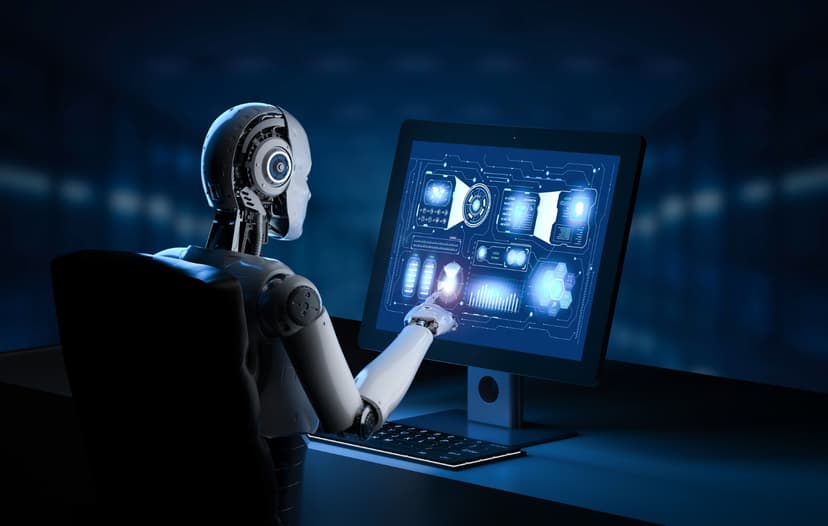


The digital future is in our hands: Software is one of the fundamental pillars upon which the digital world relies across various industries and sectors. With the continuous advancement of artificial intelligence technologies, a new concept in software development has begun to take shape, where AI has become a key tool that contributes to improving and simplifying the software development process. Integrating AI into software development represents a qualitative shift towards a more efficient and innovative future, contributing to accelerating productivity, improving performance, and providing smart solutions that keep pace with modern requirements.
What is AI in Software Development?
AI in software development refers to the use of AI technologies to help build and design software more effectively and efficiently. AI can accelerate many aspects of the software lifecycle, from planning and design to testing and maintenance. Technologies used in this field include machine learning, big data analytics, pattern recognition techniques, and intelligent systems.
How is AI used in software development?
Intelligent planning and design: Using AI technologies, developers can analyze large and diverse data sets related to market requirements and needs. AI also helps design systems and applications based on accurate analyses of predicted trends and patterns. Furthermore, AI tools can create design prototypes or suggest engineering solutions that may be more efficient.
Automated Code Development: AI helps speed up code writing through tools such as intelligent programming assistants (such as GitHub Copilot), which provide code suggestions as developers write. AI analyzes the code written by programmers and helps improve it by predicting the next code based on current data. This increases developer productivity and helps reduce bugs.
Intelligent Software Testing: Software testing is one of the most important phases of software development, helping ensure the quality and efficiency of the software. AI can contribute to improving software testing by automatically analyzing code to detect errors and inconsistencies. AI can also generate preliminary test scenarios based on real-world usage patterns and user behavior, reducing the time and costs associated with this process. Predictive Maintenance: After software is released, users may encounter bugs or technical issues that need to be fixed. AI can use data and predictive analytics to detect problems before they become serious for end users. AI continuously monitors software and predicts potential failures, helping to proactively improve maintenance. Intelligent Project Management: AI technologies help software development teams organize work and analyze time and resource estimates more accurately. By monitoring progress and analyzing historical data, AI can provide accurate reports on project schedules and potential risks, facilitating faster and more accurate decision-making.
Benefits of Using AI in Software Development
Increased Efficiency and Speed: AI helps speed up the software development cycle by automating repetitive tasks such as programming and testing, reducing time and effort.
Improved Quality: AI can detect errors and problems faster than traditional methods, improving software quality and reducing error rates.
Fostering Innovation: AI provides the tools that enable developers to think in new and unconventional ways, opening up new avenues for innovation in software design.
Reduced Costs: By improving productivity and reducing errors, the costs associated with software development and maintenance can be reduced.
Analysis and Forecasting: AI contributes to analyzing big data related to software projects, predicting market trends and user needs, helping develop solutions that meet customer expectations.
Challenges Associated with Using AI in Software Development
Complexity of Team Coordination: Using AI requires careful coordination between development and AI teams to ensure effective integration.
Data Dependence: AI technologies rely heavily on good, accurate data. Therefore, any incomplete or distorted data can negatively impact system performance.
Automation Concerns: Some developers and teams may feel they will be replaced by intelligent tools, raising concerns about the impact of automation on the job market.
The use of AI in software development represents a revolutionary step toward improving processes and increasing efficiency in the software industry. By automating repetitive tasks, accelerating testing, and improving designs, AI can revolutionize the way software is built. As AI technologies continue to evolve, these tools are expected to become more intelligent, enabling developers and companies to produce more innovative and efficient software solutions.